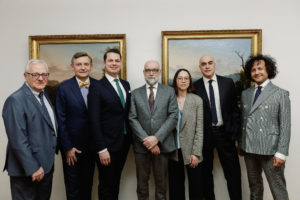Typically, the provisions of the Council Directive no. 93/13/EEC of 5 April 1993 on unfair terms in consumer contracts protect only those consumers, individuals who act outside the professional scope. The main question that arises from the perspective of the applicability of the aforementioned Directive is whether a lawyer, taking into consideration its juridical formation can be considered a consumer when concluding adherence contracts.
Although the provisions of the Directive seem not to be addressed to any professional whatsoever, in practice some exceptions appeared. The Horatiu Ovidiu Costea against Volksbank Romania SA represents one of the latest cases which clarify the conditions when an individual, practicing lawyer can be considered as a ˮconsumerˮ and benefit from the protection of the Directive’s provisions established in this concern.
The Horatiu Ovidiu Costea against Volksbank Romania SA Decision issued on September 3, 2015
Factual Situation
Mr. Costea, who practiced as a lawyer, concluded a bank loan with Volksbank but as an individual. Although the scope of the Contract mentioned by Mr. Costea was that the loan is granted to cover personal expenses, for the reimbursement of the loan Mr. Costea secured by an immovable asset belonging to the law firm of Mr. Costea. After the signing of the Contract, Mr. Costea addressed to the Court of Oradea claiming that the clauses of the Contract are abusive and requesting their annulment. The aforementioned Court decided to suspend the cause and addressed to the European Court of Justice.
The European Courts’ of Justice’s considerations
According to the Council Directive 93/13/EEC of 5 April 1993 on unfair terms in consumer contracts, any individual who, in the Contracts covered by its provisions, acts for purposes which are outside his trade activity, business or profession is a ʺConsumerʺ.
In this context, the European Court of Justice analyzed whether a lawyer who concludes a bank loan can be considered to be acting as a ʺConsumerʺ if the loan is secured by an immovable asset belonging to the law firm.
The main question that arose was whether the lawyer can find himself in a position of inferiority compared to that of a seller or to that of a provider of services, not only from the power of negotiating point of view, but also from the informational level point of view. Both of the aforementioned situations can determine the Consumer, lawyer or not, to adhere to the already written contractual clauses without any power to change or modify them.
The European Court of Justice took into consideration the inequality between consumer – clients and lawyers and decided that this situation cannot exclude per se the possibility to qualify a lawyer as a ʺconsumerʺ according to the provisions of the Council Directive 93/13/EEC of 5 April 1993 on unfair terms in consumer contracts.
Even if one can assume that a lawyer possesses or should possess a high level of technical information, this presumption cannot lead to the conclusion that a lawyer is not or may not be a weaker party compared to the seller or to the provider of services.
The European Court of Justice’s ruling
The European Court of Justice established in this particular case, that a lawyer should not be excluded from the consumer concept in case it is shown that he was acting outside the purpose of his profession, even if the loan was secured by an immovable asset belonging to his law firm.
Andreea Paducel
On behalf of Jinaru, Mihai & Notingher



